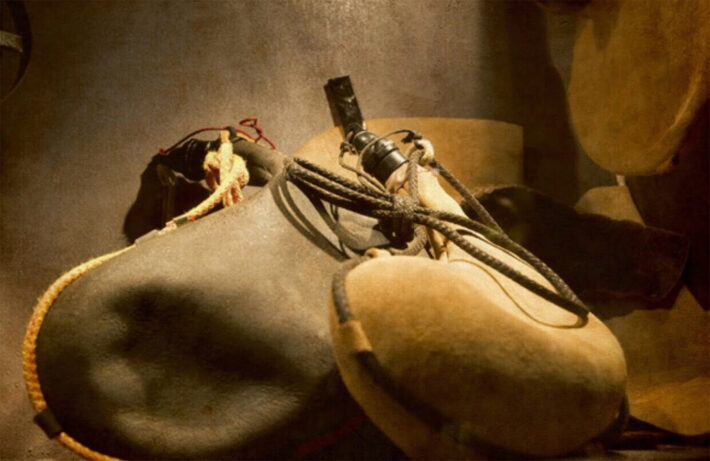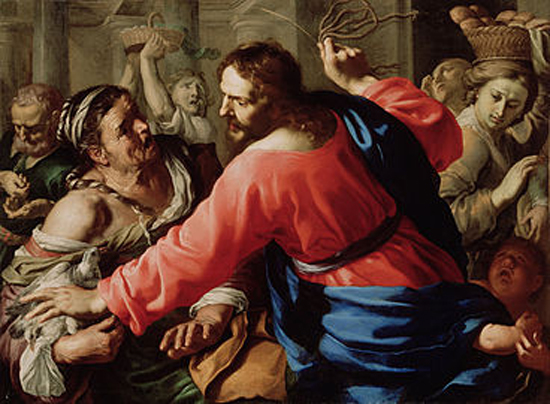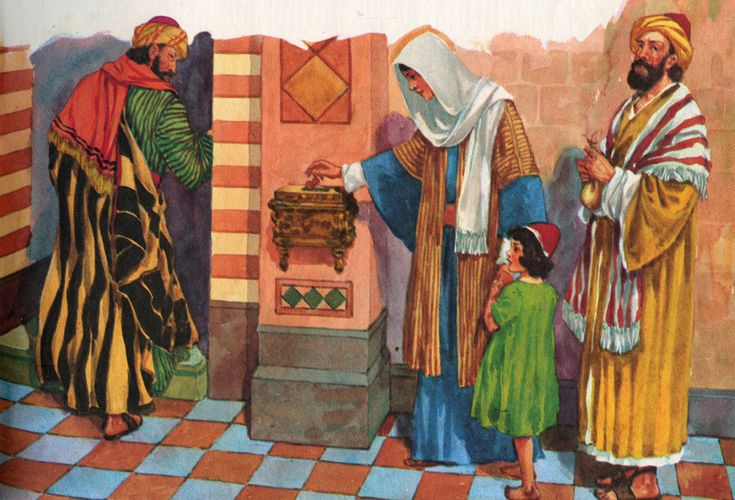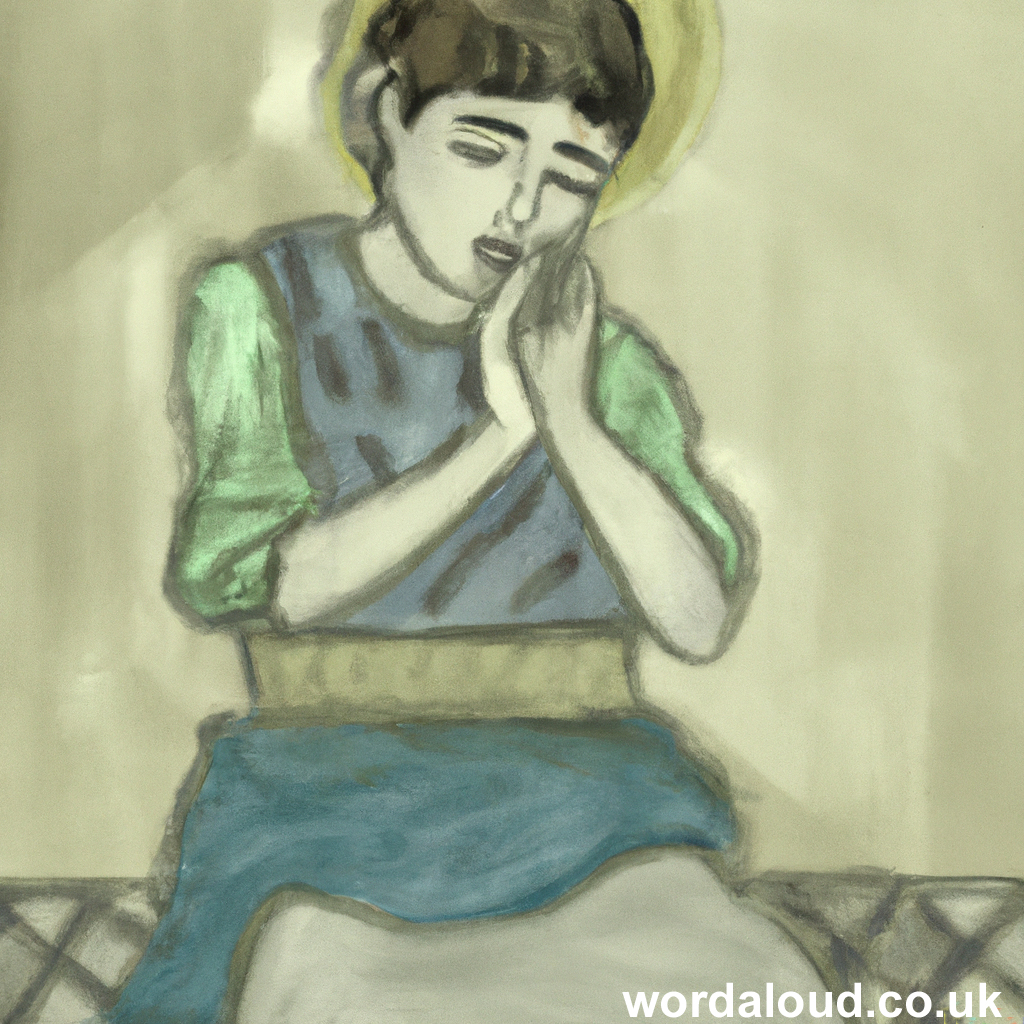Christian Art | New Wine In Old Bottles
Mark 2: 18-22 | Week 2 Ordinary Time, Monday & 8th Sunday Year B (Audio Bible KJV)
18 And the disciples of John and of the Pharisees used to fast: and they come and say unto him, Why do the disciples of John and of the Pharisees fast, but thy disciples fast not?
19 And Jesus said unto them, Can the children of the bridechamber fast, while the bridegroom is with them? as long as they have the bridegroom with them, they cannot fast.
20 But the days will come, when the bridegroom shall be taken away from them, and then shall they fast in those days.
21 No man also seweth a piece of new cloth on an old garment: else the new piece that filled it up taketh away from the old, and the rent is made worse.
22 And no man putteth new wine into old bottles: else the new wine doth burst the bottles, and the wine is spilled, and the bottles will be marred: but new wine must be put into new bottles.
In today’s Gospel verses, as yesterday and tomorrow, Jesus finds himself in conflict with some of the Jewish religious leaders. Today, the issue is fasting. It seems Jesus and his disciples are not following received custom.
In reply, Jesus announces himself as the one who has come to fulfil, to renew and to reinterpret, to change, the Law and received custom. He speaks of himself as the bridegroom, his disciples as the guests at the wedding feast. This way of speaking is provocative indeed. Jesus is effectively saying that he is the Lord who has come to redeem Israel. Compare Isaiah 54: 5: ‘For thy Maker is thine husband; the Lord of hosts is his name; and thy Redeemer the Holy One of Israel; The God of the whole earth shall he be called.’ Compare also Hosea 2: 18-22:
18 And in that day will I make a covenant for them with the beasts of the field, and with the fowls of heaven, and with the creeping things of the ground: and I will break the bow and the sword and the battle out of the earth, and will make them to lie down safely.
19 And I will betroth thee unto me for ever; yea, I will betroth thee unto me in righteousness, and in judgment, and in lovingkindness, and in mercies.
20 I will even betroth thee unto me in faithfulness: and thou shalt know the Lord.
The Jewish fasts and religious observances, and then more recently the ministry of John the Baptist, have prepared the way for Jesus, the Messiah. Now Jesus is here and the Old Testament must give way to the new. This is the wedding feast. To be with Jesus is to be in the presence of an entirely new way of being. This is the new wine, which will burst the old bottles, our new and eternal way of being alive – which cannot fit within the constraining moulds of the Old Law. The new wine must be put in new bottles. We are challenged to renew ourselves, to ditch our baggage and be fresh, to receive Jesus.
THE heavens declare the glory of God; and the firmament sheweth his handywork.
Day unto day uttereth speech, and night unto night sheweth knowledge.
There is no speech nor language, where their voice is not heard.
Their line is gone out through all the earth, and their words to the end of the world. In them hath he set a tabernacle for the sun,
Which is as a bridegroom coming out of his chamber, and rejoiceth as a strong man to run a race.
His going forth is from the end of the heaven, and his circuit unto the ends of it: and there is nothing hid from the heat thereof. (from Psalm 19/18)
Concluding Prayer
Almighty Lord and God,
protect us by your power throughout the course of this day,
even as you have enabled us to begin it:
do not let us turn aside to any sin,
but let our every thoguht, word and deed
aim at doing what is pleasing in your sight.
We make our prayer through our Lord.
![]()
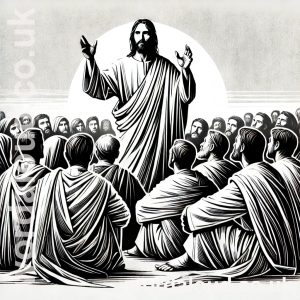
Audio Bible KJV | Endnotes
What is it to fast for Jesus?
What is it to fast for Jesus? Fasting has been a part of Christian tradition since the early days of the Church. In fact, Jesus Himself fasted for 40 days and 40 nights in the wilderness before beginning His ministry (Matthew 4:2). Fasting has been seen as a way to draw closer to God and to purify oneself in preparation for spiritual experiences.
The Church has a long history of fasting. The Catechism Of The Catholic Church states that fasting is an ‘expression of the interior penance of the Christian’ and that it ‘enables one to acquire mastery over one’s instincts and freedom of heart’ (CCC 2043). The Church has traditionally required Catholics to fast on Ash Wednesday and Good Friday, as well as on other days throughout the year.
Protestants also engage in fasting, although the practice is often less formalized than in the Church. Protestant theologians have written extensively on the topic of fasting, with some arguing that fasting should be a regular part of Christian life, while others view it as a more occasional practice.
Regardless of one’s denomination or tradition, the purpose of fasting is always the same: to draw closer to God. Fasting involves abstaining from food or other pleasures for a period of time, with the goal of redirecting one’s attention and energy towards prayer and spiritual contemplation. As the Catechism states, fasting ‘expresses mourning for sin and conversion of heart’ (CCC 1434).
Fasting can take many different forms. Some Christians choose to fast from all food for a period of time, while others may fast from certain types of food or from other pleasures such as television or social media. The duration of a fast can also vary, from just a few hours to several days or even weeks.
Throughout the Bible, fasting is portrayed as a powerful tool for spiritual growth and transformation. In the Old Testament, the prophet Isaiah wrote that true fasting involves not just abstaining from food, but also ‘loosing the bonds of wickedness, undoing the straps of the yoke, letting the oppressed go free, and breaking every yoke’ (Isaiah 58:6). In other words, true fasting involves not just abstaining from physical pleasures, but also using that time and energy to do good and serve others.
In the New Testament, Jesus gave instructions on how to fast, saying: ‘When you fast, do not look gloomy like the hypocrites, for they disfigure their faces that their fasting may be seen by others. Truly, I say to you, they have received their reward. But when you fast, anoint your head and wash your face, that your fasting may not be seen by others but by your Father who is in secret. And your Father who sees in secret will reward you.’ (Matthew 6:16-18)
The words of Jesus emphasize that fasting should not be done for show or to impress others. Rather, it should be a private and personal act of devotion to God. Fasting should be done with a spirit of humility and repentance, recognizing that we are all in need of God’s grace and mercy.
Early Church fathers also wrote extensively about fasting. Saint Augustine saw fasting as a way to strengthen the will and to overcome temptation. In his book City Of God, Saint Augustine wrote: ‘Let us fast and pray, let us make war against the flesh and subdue it, so that our soul may be free from its bondage and worthy to enjoy eternal life.’ (City Of God, Book X, Chapter 32)
Saint John Chrysostom also emphasized the importance of fasting in his homilies. Saint John Chrysostom saw fasting as a way to purify the soul and to draw closer to God. In one of his sermons, Saint John Chrysostom said: ‘Fasting is an ancient medicine, an appropriate remedy for every bodily disease… it extinguishes the passions, cleanses the soul, leads to contemplation, and draws us closer to God’ (Homily XXI on Matthew).
The Protestant Reformation also had a significant impact on the practice of fasting. Some Protestant theologians, such as John Calvin, saw fasting as a personal choice rather than a requirement of the Church. Calvin believed that fasting could be a helpful spiritual discipline, but that it should not be forced upon people by the Church.
John Wesley, founder of the Methodist Church, believed that fasting could help Christians to overcome their worldly desires and to focus on God. John Wesley wrote: ‘Fasting, properly understood and applied, is a help to the spiritual life, and an essential part of Christian discipline.’ (Sermon 27, The Duty of Constant Communion)

